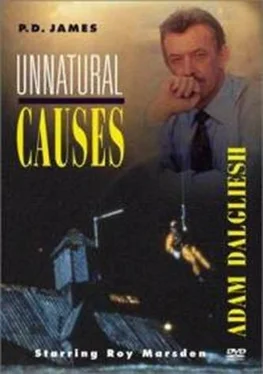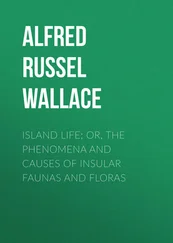P James - Unnatural Causes
Здесь есть возможность читать онлайн «P James - Unnatural Causes» весь текст электронной книги совершенно бесплатно (целиком полную версию без сокращений). В некоторых случаях можно слушать аудио, скачать через торрент в формате fb2 и присутствует краткое содержание. Жанр: Детектив, на английском языке. Описание произведения, (предисловие) а так же отзывы посетителей доступны на портале библиотеки ЛибКат.
- Название:Unnatural Causes
- Автор:
- Жанр:
- Год:неизвестен
- ISBN:нет данных
- Рейтинг книги:4 / 5. Голосов: 1
-
Избранное:Добавить в избранное
- Отзывы:
-
Ваша оценка:
- 80
- 1
- 2
- 3
- 4
- 5
Unnatural Causes: краткое содержание, описание и аннотация
Предлагаем к чтению аннотацию, описание, краткое содержание или предисловие (зависит от того, что написал сам автор книги «Unnatural Causes»). Если вы не нашли необходимую информацию о книге — напишите в комментариях, мы постараемся отыскать её.
Unnatural Causes — читать онлайн бесплатно полную книгу (весь текст) целиком
Ниже представлен текст книги, разбитый по страницам. Система сохранения места последней прочитанной страницы, позволяет с удобством читать онлайн бесплатно книгу «Unnatural Causes», без необходимости каждый раз заново искать на чём Вы остановились. Поставьте закладку, и сможете в любой момент перейти на страницу, на которой закончили чтение.
Интервал:
Закладка:
“Later next morning, as soon as he was released, Digby set out with the motorcycle and sidecar for Monksmere. He didn’t look at the body. I had instructed him not to open the sidecar but I doubt whether he was tempted. He was still living in the comfortable, imaginary world of the plot which I had created for him. I couldn’t foresee how remarkably he would react when he could no longer pretend to believe in it. But when he set out secretly from Carrington Mews that morning I have no doubt that he felt as innocently excited as a schoolboy whose practical joke is going well. There was no trouble on the journey. The black plastic driving suit, the helmet and goggles were a perfect disguise as I had known they would be. He had a single ticket to Saxmundham from Liverpool Street in his pocket and before leaving the West End he posted to Seton House my description of the Cortez Club. It seems almost unnecessary to say that a typing style can easily be disguised but not the typewriter used. I had typed the passage some weeks earlier on Maurice’s machine wearing a glove on my right hand and with bandaged left fingers. The passage about the mutilated body floating out to sea had been typed by Maurice and was taken by me from his papers. Using it was one of the small but agreeable refinements which I had incorporated into my plan when I learned about Miss Calthrop’s idea for an effective opening for one of Maurice’s books. It was in every sense a gift to me as well as to Maurice. To a large extent it determined the whole shape of the murder plot, and I made use of it brilliantly.
“But there was one vital part of my plot which I haven’t yet mentioned. Strangely enough, although I expected it to be the most difficult, it was the easiest of all. I had to make Digby Seton marry me. I thought that bringing him to this might take weeks of skilful persuasion. And I didn’t have those weeks. All the planning had to be done in those rare weekends when he was at Monksmere. I let him write to me because I could be sure that the letters would be burnt, but I never wrote to him and we never telephoned each other. But persuading him to this disagreeable and yet essential part of the plan wasn’t the kind of thing I could do by post. I even wondered whether this would be the rock on which the whole scheme would be wrecked. But I misjudged him. He wasn’t entirely stupid. If he had been I would never have risked making him a partner in his own destruction. He could recognise the inevitable. And after all, it was in his own interest. He had to marry to get his hands on the money. There was no one else he wanted. He certainly wasn’t keen on a wife who would make demands on him or interfere in his life, a wife who might even want to sleep with him. And he knew that he had to marry me for one overriding reason. No one would be able to prove that we killed Maurice unless one of us talked. And a wife can’t be made to give evidence against her own husband. It was arranged, of course, that we would divorce after a reasonable time and I was very generous about the marriage settlement. Not suspiciously generous. Just very very reasonable. I could afford to be. He had to marry me to keep me quiet and collect the cash. I had to marry him because I wanted the whole of his fortune. As his widow.
“We married by licence on fifteenth March at a London Registry Office. He hired a car and called for me early. No one saw us leaving the cottage. How could they? Celia Calthrop was away so there was no chance of her calling for me. Oliver Latham and Justin Bryce were in London. I neither knew nor cared whether Jane Dalgliesh was at home. I telephoned Maurice to say that I wasn’t well enough to report for work. He was irritated but he wasn’t concerned, and I had no fear that he might call at the cottage to see how I was. Maurice hated illness. He would care if his dog were sick. But then, he was fond of his dog. I find it very satisfying that he might be alive now if only he had cared enough to call at Tanner’s Cottage that day, to wonder where I had gone-why I had lied.
“But time and this tape are running out. I have settled my account with Maurice Seton. This is my triumph not my justification and there is still much to be told.
“Digby, driving the motorcycle and sidecar, arrived at Tanner’s Cottage just before six o’clock on Wednesday. It was dark by then and there was no one about. There never is once dusk has fallen on this coast. Maurice was dead, of course. Digby’s face was very white under the helmet as he prised off the lid of the sidecar. I think he had expected to see his victim’s face contorted into a grimace of horror, the dead eyes glaring accusingly. Unlike me he hadn’t read Maurice’s textbooks on forensic medicine. He didn’t know about the relaxing of muscles after death. The calm face, so ordinary, so vacuous, so completely without the power to be either frightening or pathetic seemed to reassure him. But I had forgotten to explain about rigor mortis. He hadn’t expected that we should need to break the rigor in the knees so that the body could be fitted into my wheelchair and taken down to the shore. He didn’t enjoy that necessary bit of business. I can still hear his high nervous giggle at the sight of Maurice’s thin legs, clad in those ridiculous trousers and sticking straight out like the broomstick legs of a Guy. Then Digby hit them and the rigor broke and they dangled and swung above the footrest like the legs of a child. That small act of personal violence to the body did something to Digby. I was perfectly ready to take off the hands myself. I wanted to bring that chopper down. But Digby took it from me and waited without speaking while I laid out the hands ready for him on the thwart. I might have made a neater job of it. I doubt whether I would have enjoyed it any more than he. Afterwards I took the hands from him and put them in my mackintosh toilet bag. Digby had a use for them; he was determined to send them to Luker. But there were things I had to do to them first in the privacy of my dark room. In the meantime I slung the bag around my neck and enjoyed the feel of those dead hands, seeming to creep against my flesh.
“Last of all Digby pushed the dinghy out on the ebb tide, wading deep into the sea. I wasn’t worried about bloodstains. The dead bleed slowly if they bleed at all. If there was spotting on the cycling suit the sea would wash it away. Digby waded back to me, glistening out of the darkness, hands clasped above his head, like someone who has been ritually cleansed. He did not speak as he wheeled me back to the cottage. As I have said, in some ways I underestimated him, and it was only on that silent journey back through the narrow lane that it struck me he could be dangerous.
“The rest of the night’s work should have been the simplest. The plan was for Digby to drive as fast as he could to Ipswich. On the way he would stop at a lonely place on the bank of the Sizewell Sluice, detach the sidecar and sink it into the deep water. Once in Ipswich he would take the number plates off the motorcycle and abandon it in a side street. It was an old machine and it was unlikely that anyone would bother to trace the owner. And, even if it were traced to Digby and the sidecar found, we still had our second line of defence: the story of the experiment to kidnap Maurice, the innocent wager that went so tragically wrong. And we should have Lily Coombs to corroborate our story.
“My instructions to Digby were very clear. After abandoning the cycle he would first post Maurice’s manuscript describing the handless body drifting out at sea. Then he would go to the station, still wearing his overalls, and would take a platform ticket. I didn’t want the ticket collector to note the passenger who was joining his train at Ipswich with a ticket issued in London. Digby would push through the barrier when there was a convenient crowd, join the Saxmundham train, change his overalls in the lavatory, put them in a small hold-all, and arrive at Saxmundham at eight-thirty. He would then take a cab to Seton House where I would be waiting for him in the darkness to check that all had gone according to plan and to give him any instructions for the future. As I have said, it was the easiest part of the night’s work and I expected no trouble. But Digby was beginning to sense his power. He did two very stupid things. He couldn’t resist the temptation to detach the sidecar and drive at top speed around the village, even showing himself to Bryce. And he invited Liz Marley to meet him at Saxmundham. The first was no more than childish exhibitionism; the second could have been fatal. I was physically very tired by now and emotionally unprepared to deal with this insubordination. As I heard Miss Marley’s car drive up and was watching them both from the shadow of the curtains, the telephone rang. I know now that it was only Plant making a routine enquiry for Mr. Seton. At the time it shook me. Two unforeseen things were happening together and I was prepared for neither. If I had been given time to take myself in hand I should have coped with the situation better. As it was, I quarrelled violently with Digby. There is no point in wasting time with what either of us said, but it ended with Digby driving off furiously into the night with the intention, he said, of going back to London. I didn’t believe him. He had too much at stake to throw in his hand now. This was no more than another childish gesture of independence provoked by the quarrel and intended simply to frighten me. But I waited until the early hours for the return of the Vauxhall, sitting there in the darkness since I dared not put on a light, wondering whether one moment of temper was to undo all my careful planning, and scheming how the situation might yet be retrieved. It was two in the morning before I made my way home. Next morning I was back at Seton House early. Still no sign of the car. It was not until Thursday night when the telephone call came through to Pentlands that I knew what had happened. By then I had no need to simulate shock. It is good to know that Digby Seton will soon be paying for what he did to me during those twenty-four hours. He was surprisingly resourceful about it all. His story about the false telephone call was very clever. It would explain any hints about Maurice’s death which he may have let out during the periods of babbling semi-consciousness. It strengthened his alibi. It made things even more uncomfortable for the Monksmere community. I had to admire his ingenuity, his inventiveness. And I wondered how long it would be before he began thinking about ridding himself of me.
Читать дальшеИнтервал:
Закладка:
Похожие книги на «Unnatural Causes»
Представляем Вашему вниманию похожие книги на «Unnatural Causes» списком для выбора. Мы отобрали схожую по названию и смыслу литературу в надежде предоставить читателям больше вариантов отыскать новые, интересные, ещё непрочитанные произведения.
Обсуждение, отзывы о книге «Unnatural Causes» и просто собственные мнения читателей. Оставьте ваши комментарии, напишите, что Вы думаете о произведении, его смысле или главных героях. Укажите что конкретно понравилось, а что нет, и почему Вы так считаете.












